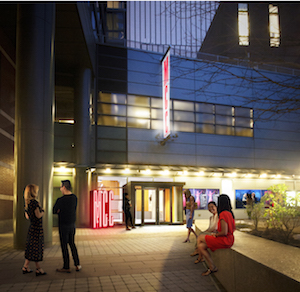
BY YANNIC RACK | After three decades of encouraging Off-Broadway actors, writers, and directors to develop their own voices, the groundbreaking MCC Theater has finally broken ground on its new Hell’s Kitchen space. The long-awaited move will provide the nomadic, nonprofit company with a stable home for the first time — and allow its founders to expand both the number of productions and the scope of its community outreach.
“I don’t think there’s a better feeling, after all these years,” said Bernard Telsey, one of the company’s artistic directors, after a Mar. 22 ceremony at MCC’s future home in the Avalon Clinton complex on W. 52nd St. (btw. 10th & 11th Aves.).
For the past decade, the group — which was founded in 1986 by Telsey and its two other artistic directors, Robert LuPone and William Cantler — has rented the 299-seat Lucille Lortel Theatre (on Christopher St., in the Village) for its Mainstage season. But its development and outreach initiatives, including a PlayLabs reading series and a Youth Company after-school program, have been based at various spots all around the city.
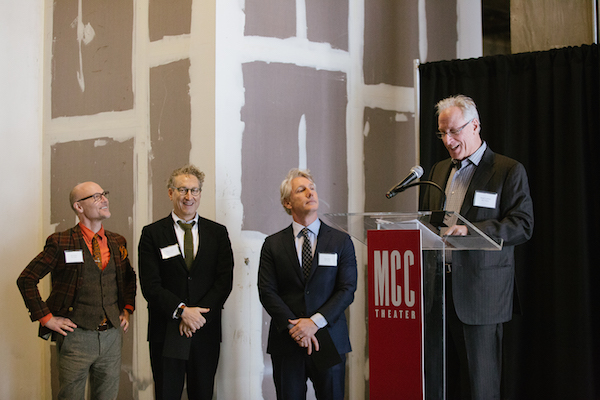
“We kind of took the idea of never having a real home for granted, because you just get used to it,” said Telsey. “Now, knowing that this is real and we have the space, it feels like Christmas every day.”
When the company moves into its new 27,000-square-feet ground-floor headquarters in time for the 2018-19 season, it will have year-round use of two stages — a 249-seat theater and a 99-seat black box — as well as ample room for rehearsals and workshops.
Plans to house the theater in the base of the 27-story residential complex were first explored around five years ago, when the city’s Department of Cultural Affairs announced it would partner with MCC to finance the $35 million project.
But the initial developer backed out of the venture and ownership of the building changed three times, which means the original 2013 opening date for the theater was pushed back repeatedly.
Now that the move is at last becoming reality, a vision for expanding its annual creative output is already underway: The company expects to increase its Mainstage season from four to six productions, and will also significantly build out its PlayLabs program, as well as a youth education initiative that already serves more than 1,200 public school students throughout New York.
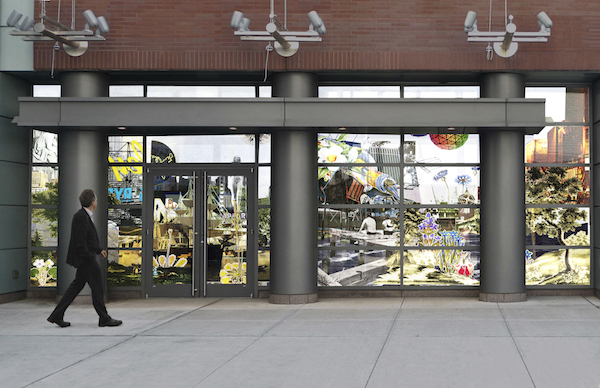
“Our plan overall is to expand in every area, but it’s not an expansion that will make this a wildly different or alienatingly large organization,” said Blake West, MCC’s executive director since 2006, who added that the company will also invest more in developing new plays and musicals to build on its current programming.
“That’s necessary to help strengthen what we do when we produce six plays on two stages,” he explained. “We feel like [the whole venture] is a natural progression, as opposed to a radical shift of who we are right now.”
Street-level space for nonprofit theaters has been part of the Avalon Clinton’s building blueprint since 2003, and the complex will also house office and performance spaces for the Alliance of Resident Theatres/New York (aka A.R.T. — a nonprofit service and advocacy group; art-newyork.org) and The 52nd Street Project (52project.org), which creates new plays for, and sometimes in collaboration with, Hell’s Kitchen kids.
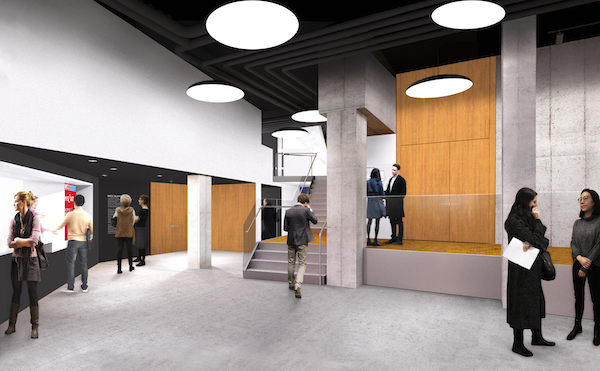
Far from feeling crowded by competing agendas, West thinks the presence of other likeminded organizations will make their new space even more of an asset — both for the theater and the surrounding community.
“With all these other partners, that building becomes an even more exciting destination for the whole neighborhood than if it was just one organization,” he said.
And with the lively — and rapidly changing — area all around, he also sees potential for partnerships beyond the MCC’s W. 52nd St. walls.
“Our experience down in the West Village has been one that has also included a lot of the local businesses for dinners and receptions and cocktail parties with our artists and audiences,” he said.
“There’s a lot of development happening out there [in Hell’s Kitchen], both in terms of residents who will be moving in, and the restaurants in the area that we’re really eager to have partnerships with. So, by the time we move in, there’s going to be even more opportunity for all that.”
The space itself will feature a courtyard entrance off W. 52nd St., as well as a visual art installation for the theater’s W. 53rd St. façade — while on the inside, the new MCC is designed to fluidly connect spaces dedicated to performance, behind-the-scenes development and front-of-house.
The project’s architect, Andrew Berman Architect, has previously designed the MoMA PS1 Entrance Building and completed the museum’s 2011 gallery renovation, and is also responsible for the National Opera Center on Seventh Ave.
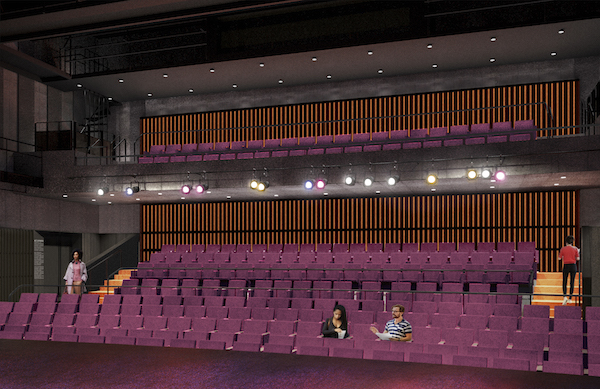
Since it is funded by a public-private partnership between MCC and the city, $25.5 million in capital money has already been contributed to the $35 million price tag, which includes the cost of building, equipment and transition costs, as well as some program expansion for the first several years, according to West.
A private donor campaign has contributed another $4.5 million to date, and the company now hopes to raise the rest of the money in a public fundraising campaign (to donate, visit mcctheatercampaign.org).
For MCC’s founding members, the two years left to wait until opening seems like a short while compared to the years they spent without a permanent space for their theater — especially for Robert LuPone, the artistic director tasked with finding a home prior to the Avalon venture.
“For maybe 10 or 15 years, I would be dragging Will and Bernie out to look at spaces. And now I feel like I’m finally getting married, after I’ve been engaged for so long,” he said.

“What’s wonderful is to finally come to a place where we can rest and do our work,” he continued. “So it’s not only a real accomplishment for the city and this project, but also for us as a theater, to be able to give to our artists a permanent home where they’re not looking over their shoulders all the time.”
MCC Theater will stage the world premiere of Halley Feiffer’s “A Funny Thing Happened on the Way to the Gynecological Oncology Unit at Memorial Sloan-Kettering Cancer Center of New York City,” beginning May 19, at the Lucille Lortel Theater (121 Christopher St., btw. Hudson & Bleecker Sts.).
The theater’s annual gala fundraiser, MISCAST, will be held on Mon., Apr. 4, at 6:30 p.m. at the Hammerstein Ballroom at the Manhattan Center (311 W. 34th St., btw. Eighth & Ninth Aves.), and will feature an all-star lineup of actors performing songs from roles in which they would never be cast. Proceeds support MCC’s artistic and education programming. For tickets and info, visit mcctheater.org.

































